iPCI 2023
Published: 14 April 2023
-
Views:
 6031
6031
-
Likes:
 7
7
-
Views:
 6031
6031
-
Likes:
 7
7
-
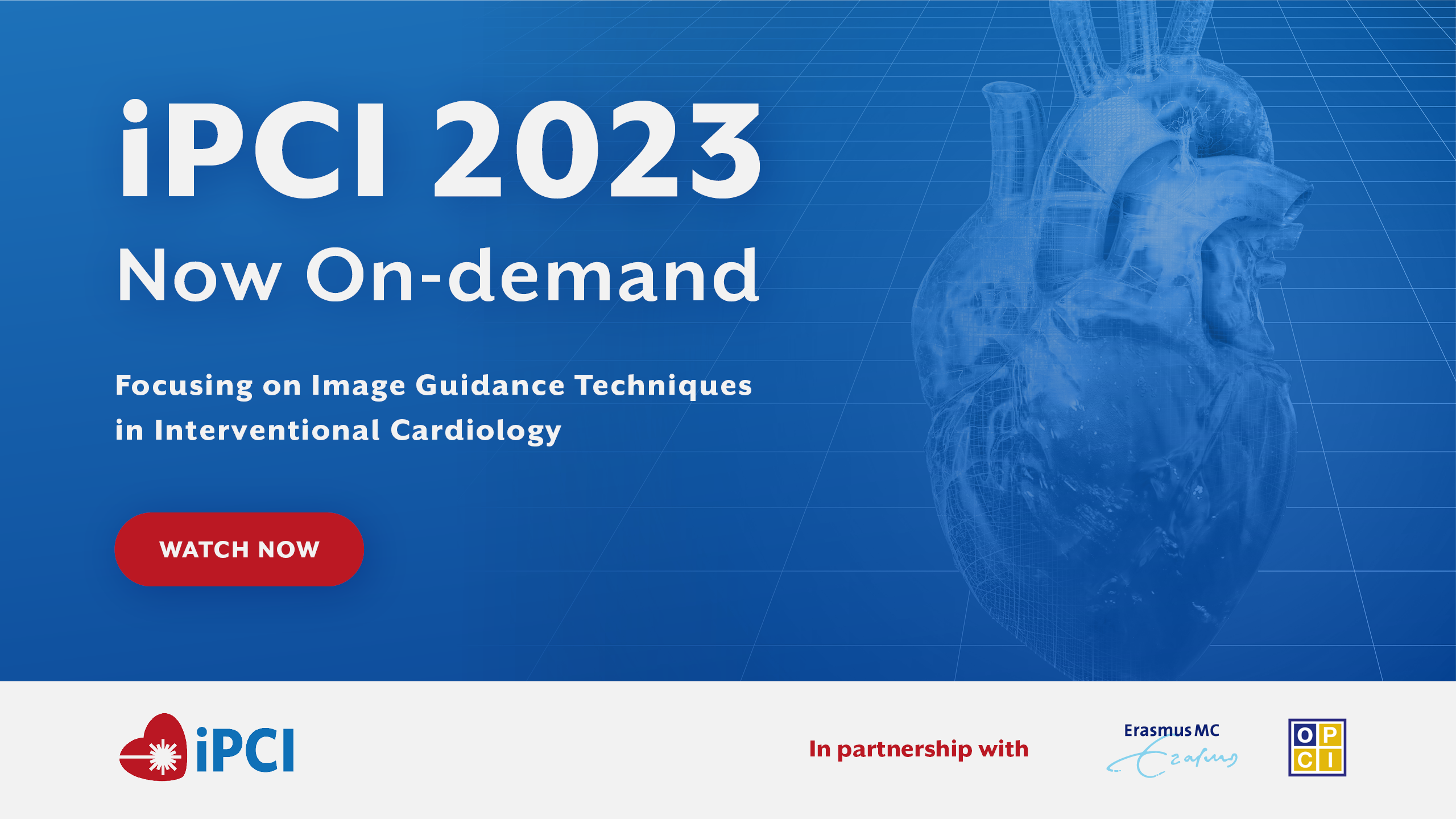 Up Next
Up Next -
 44m 3sPart 1 | Session 2 Keynote lecture: Learn IVUS from the Master
44m 3sPart 1 | Session 2 Keynote lecture: Learn IVUS from the Master -
 1h 10m 30sPart 1 | Session 3 Future options for plaque characterisation: device empowered
1h 10m 30sPart 1 | Session 3 Future options for plaque characterisation: device empowered -
 1h 5m 32sPart 1 | Session 4 Future options for plaque characterisation: computationally empowered
1h 5m 32sPart 1 | Session 4 Future options for plaque characterisation: computationally empowered -
 49m 22sPart 1 | Session 5 Live case 1 Erasmus University Medical Center, Rotterdam, NL
49m 22sPart 1 | Session 5 Live case 1 Erasmus University Medical Center, Rotterdam, NL -
 1h 7m 21sPart 1 | Session 6 Plaques and drugs
1h 7m 21sPart 1 | Session 6 Plaques and drugs
-
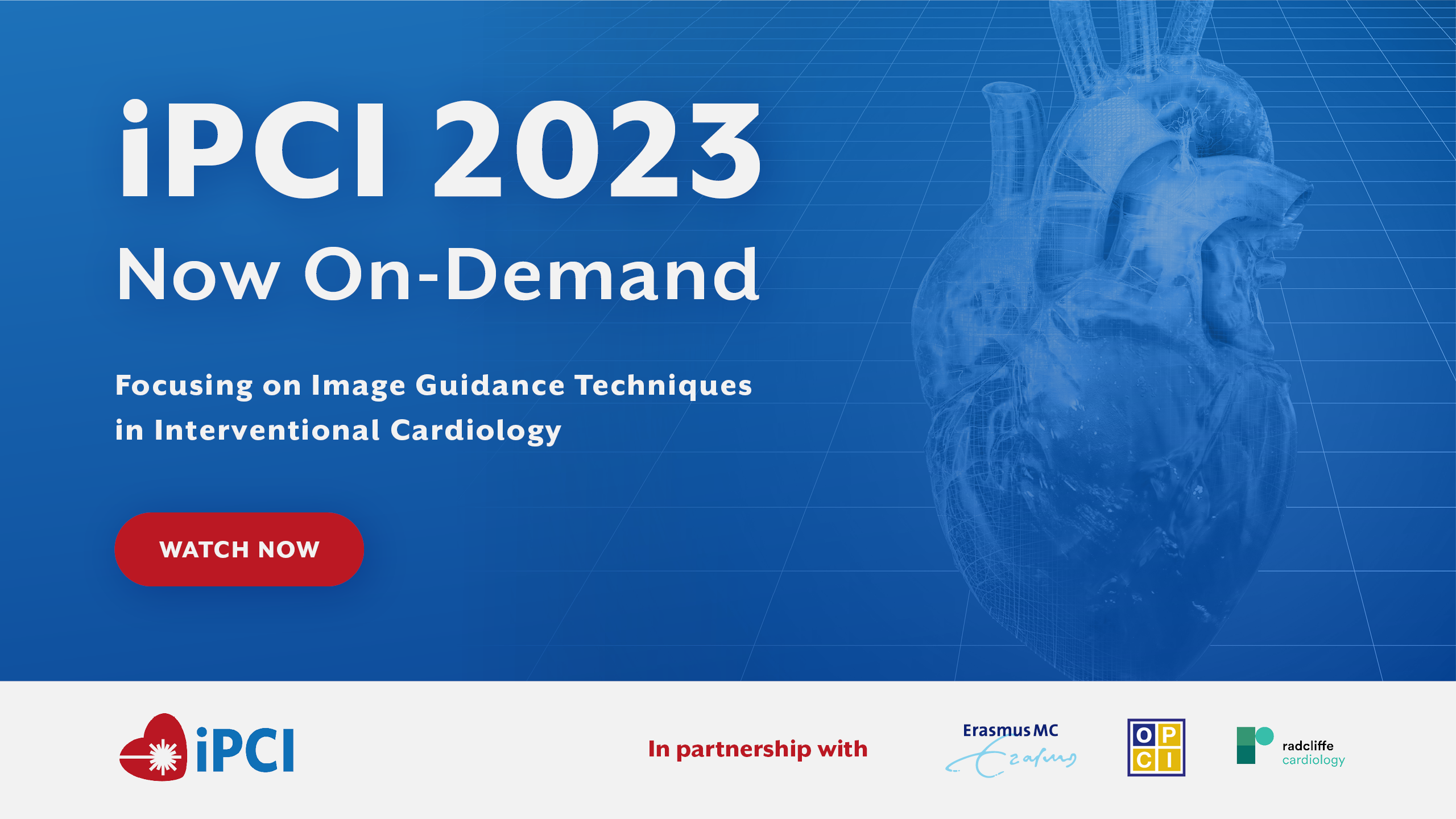 1h 10m 43sPart 2 | Session 1 Welcome and Lesion significance assessment
1h 10m 43sPart 2 | Session 1 Welcome and Lesion significance assessment -
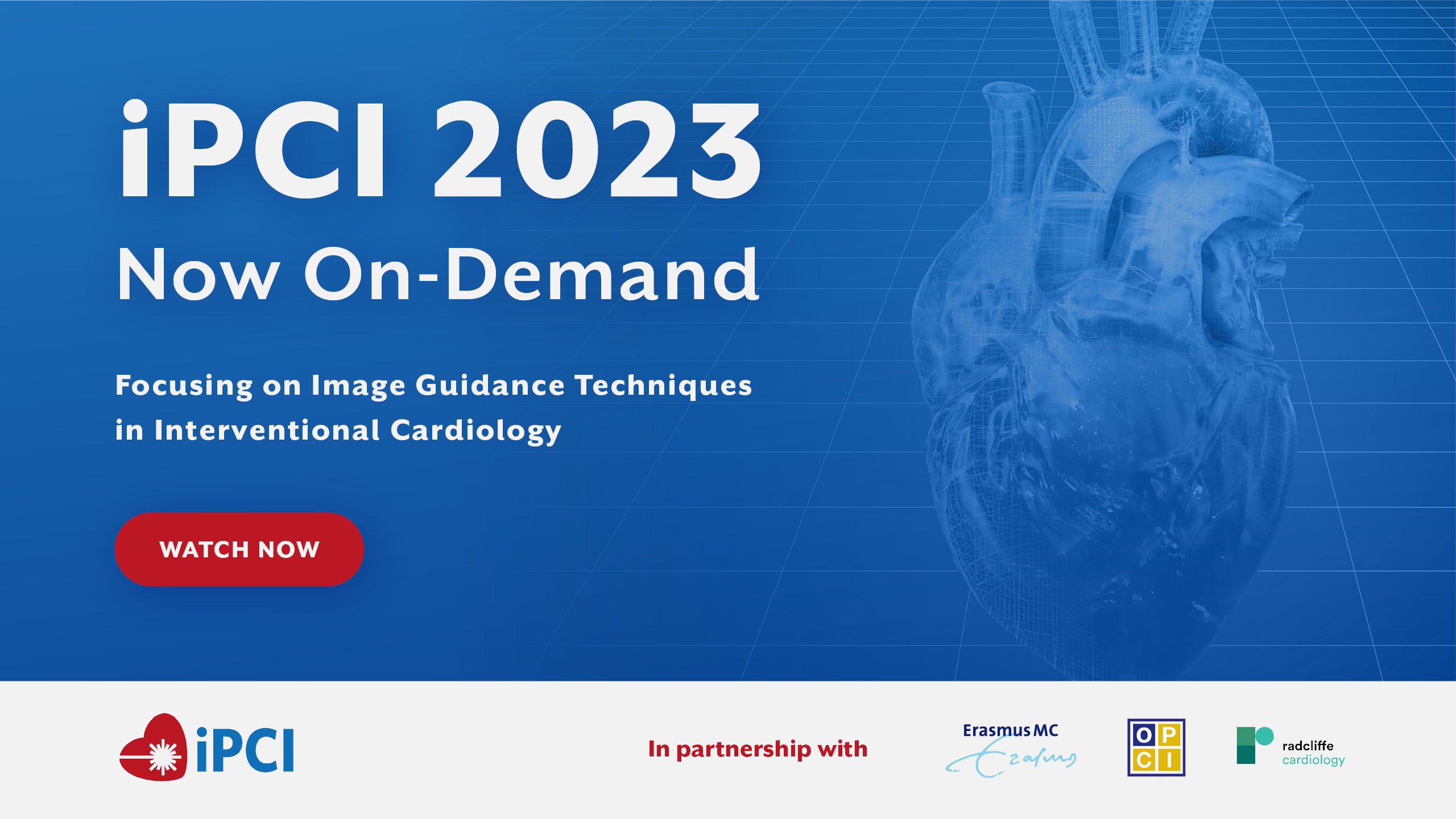 45m 57s
45m 57s -
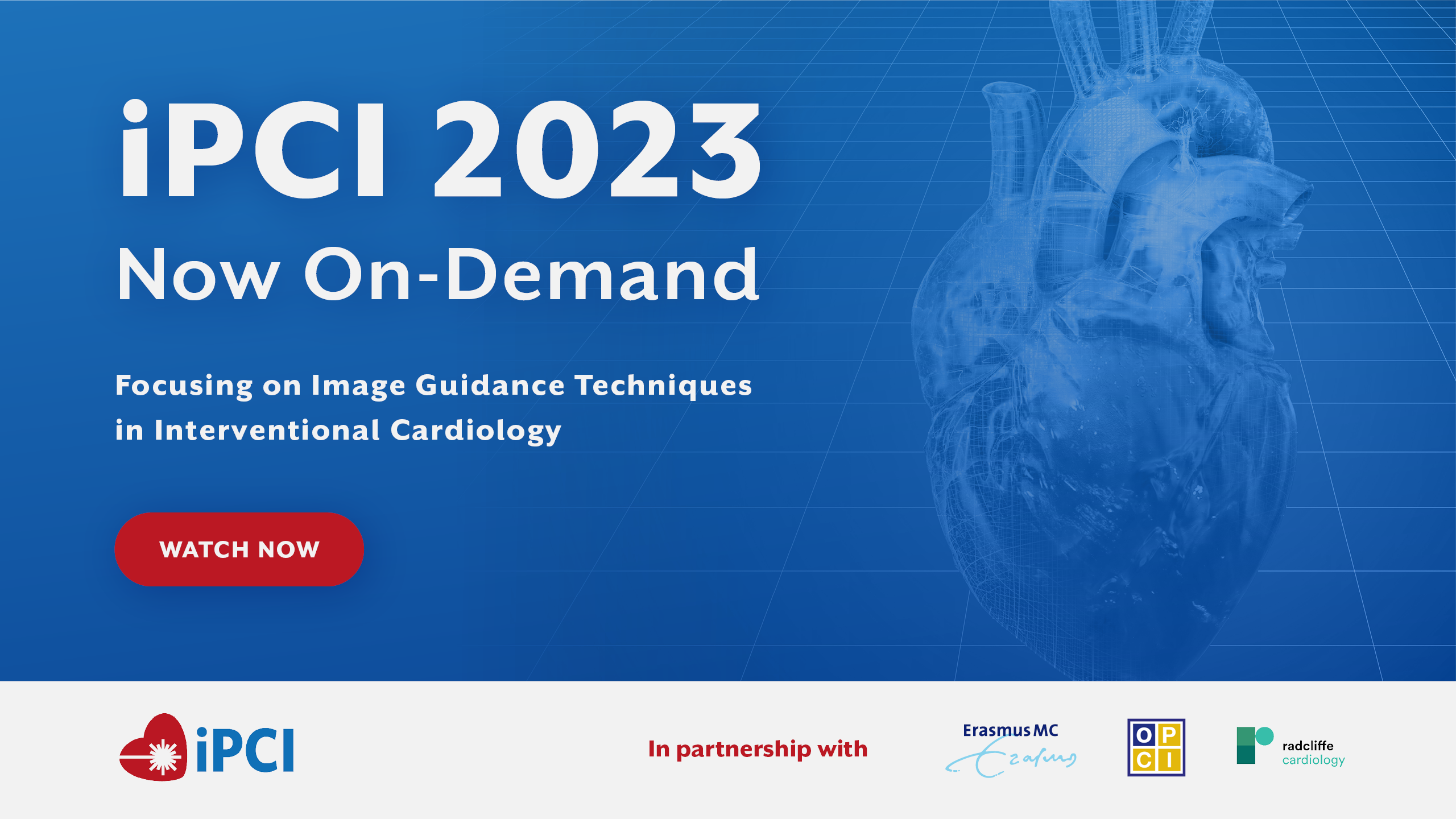 1h 2m 7sPart 2 | Session 3 Procedural planning
1h 2m 7sPart 2 | Session 3 Procedural planning -
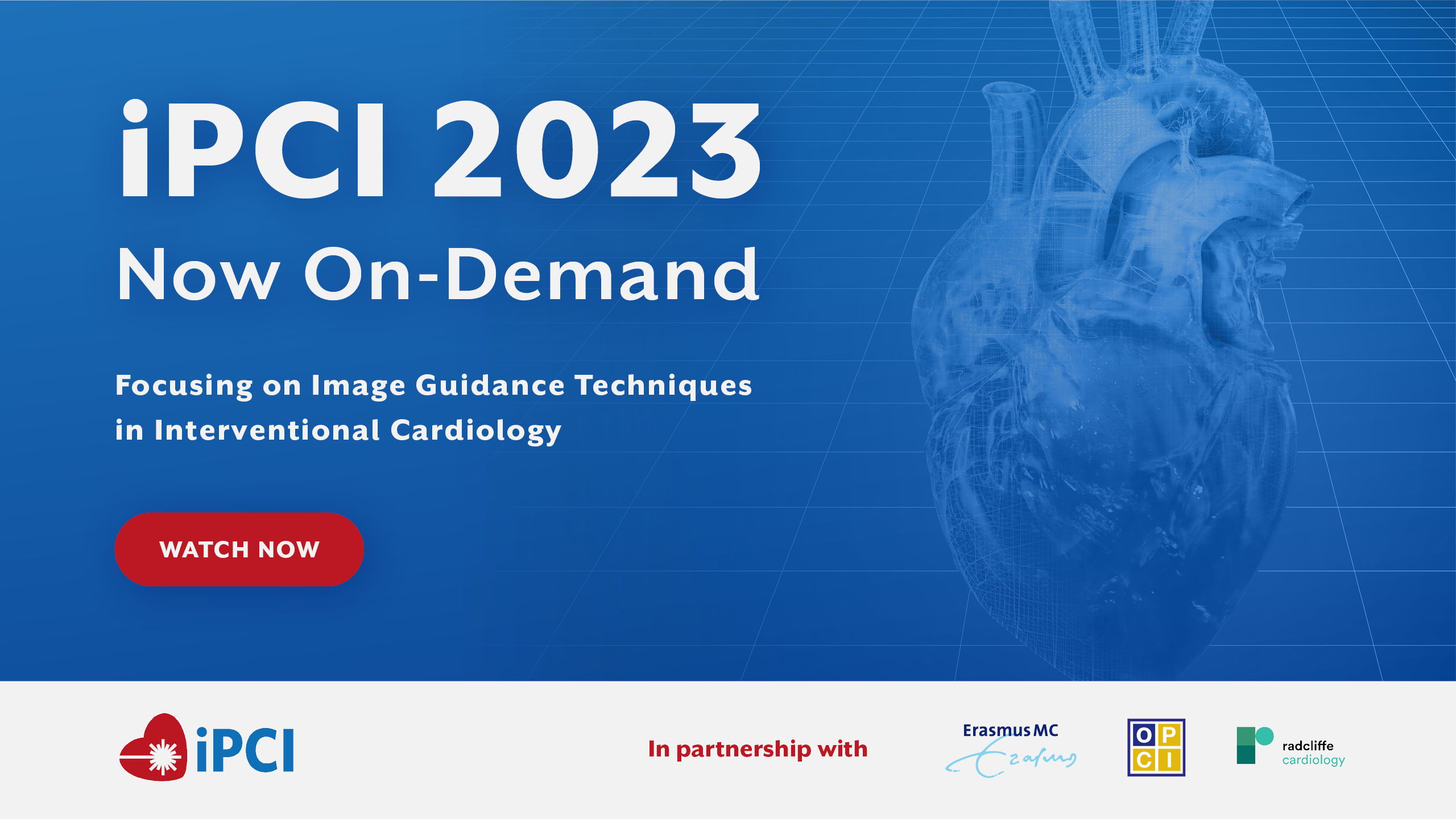 52m 28sPart 2 | Session 4 Imaging for special indications
52m 28sPart 2 | Session 4 Imaging for special indications -
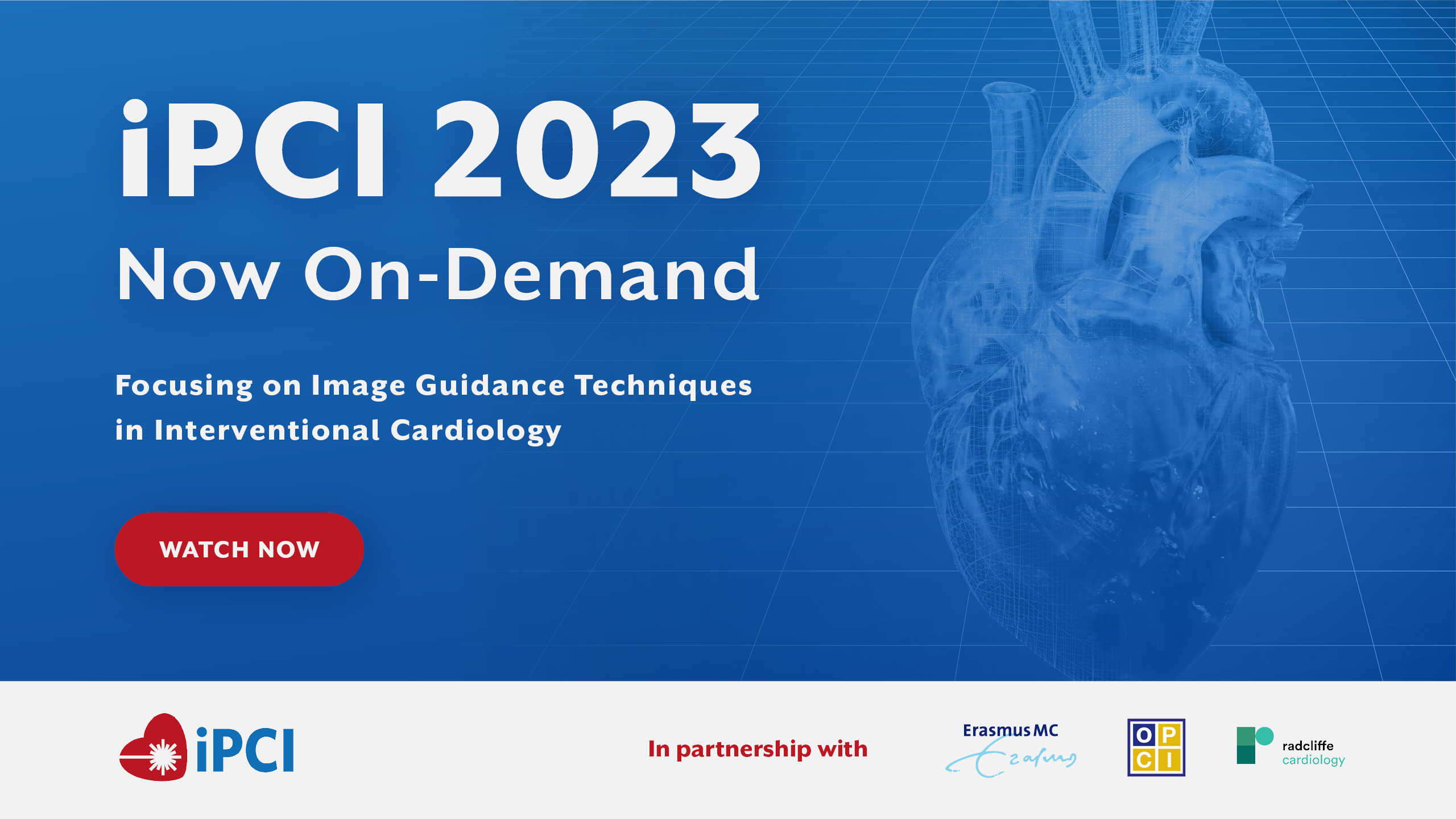 57m 15sPart 2 | Session 5 Live case 2 Catharina Hospital, Eindhoven, NL
57m 15sPart 2 | Session 5 Live case 2 Catharina Hospital, Eindhoven, NL -
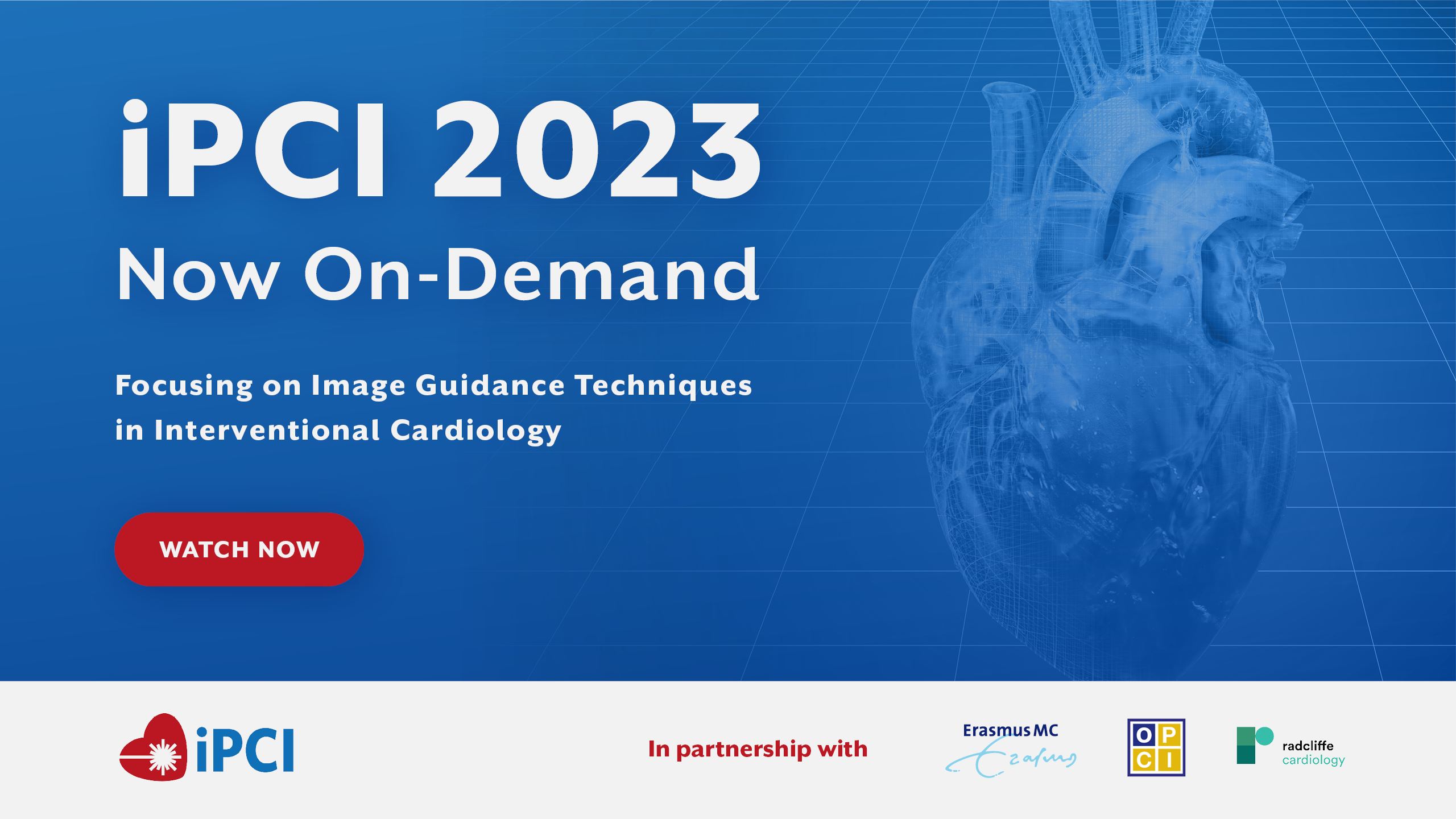 1h 13m 28sPart 2 | Session 6 PCI optimisation
1h 13m 28sPart 2 | Session 6 PCI optimisation
Overview
iPCI 2023 was a live two-day event, held on the 13–14 April at the LantarenVenster theatre in Rotterdam, NL. Focusing on image guidance techniques in interventional cardiology, with an educational focus on state-of-the-art imaging and physiology research, iPCI was led by a global faculty of over 35 physicians and engineers.
Led by Course Directors Dr Joost Daemen and Prof Dr Gijs van Soest (Thoraxcenter, Erasmus University Medical Center, Rotterdam, NL) iPCI aimed to optimise theoretical and practical education to maximise patient outcomes.
iPCI is a successor of Optics in Cardiology, which ran five exciting editions from 2011. For the first time, the dissemination of iPCI sessions extended beyond the venue – a free-to-access live virtual broadcast was open to physicians globally.
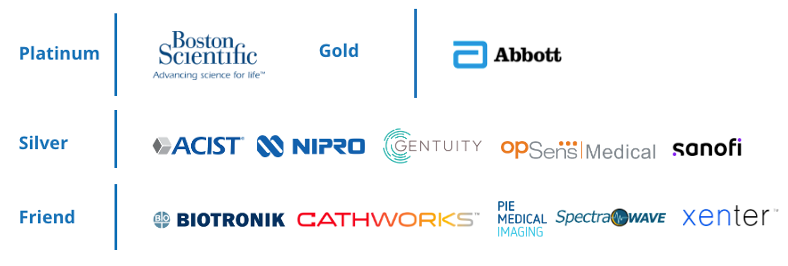
Learning Objectives
- Understand invasive plaque characterisation using existing technologies
- Learn about state-of-the-art plaque characterisation using novel technologies and combined imaging modalities
- Get hands-on experience with current IVUS and OCT modalities to recognise different types of plaque
- Learn about the impact of pharmacotherapeutic agents on plaque progression
- Learn how to assess the physiological impact of coronary plaques using the most recent technological developments
- Learn how to do procedural planning using state-of-the-art coronary imaging and physiology tools
- Understand the principles of PCI optimisation using intracoronary imaging and physiology
Target Audience
- Interventional Cardiologists
- Biomedical Imaging Engineers
More from this programme
Part 1
Day One
Part 2
Day Two
Faculty Biographies
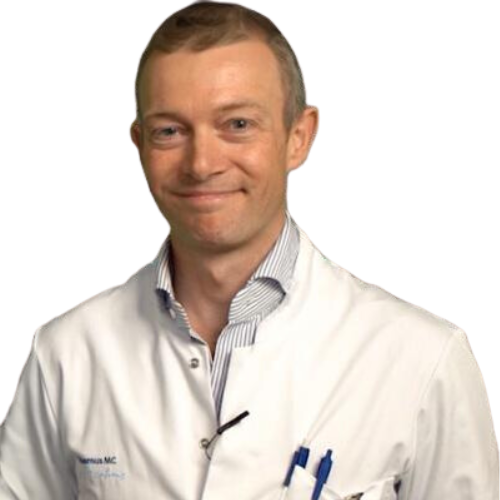
Joost Daemen
Interventional Cardiologist
Dr Joost Daemen, MD, PhD is a senior interventional cardiologist at the Thorax Center, Erasmus MC, Rotterdam, NL. Dr Daemen obtained his degree in medicine at the Erasmus University Medical Center, Rotterdam in 2005 and did 2 years of internal medicine training and 4 years of general cardiology training at the Thoraxcenter, Rotterdam.
Dr Daemen is actively involved in several drug-eluting stent trials and is Principal Investigator of four trials focusing on the safety and efficacy of renal sympathetic denervation in hypertension, heart failure, vasospastic angina and heart failure. Dr Daemen is a member of the editorial board of EuroIntervention and the Netherlands Heart Journal, member of Young ICIN, and has completed courses in biomedical statistics and device training.
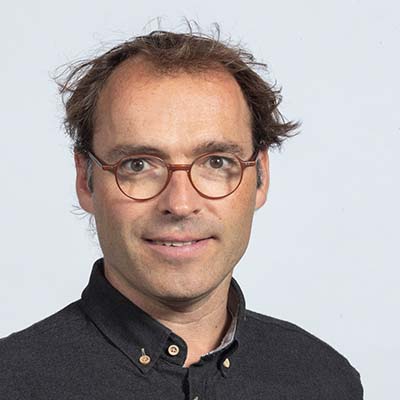
Gijs van Soest
Head of Invasive Imaging
Dr van Soest is an experimental physicist by training (MSc Rijksuniversiteit Groningen 1997). In 2005 he joined the Biomedical Engineering group of the Thorax Center at Erasmus University Medical Center, Rotterdam, NL. Starting a new research topic in optical imaging and taking on the existing research in intravascular ultrasound, he developed his own research line. He became a member of the faculty in 2010 and was appointed Associate Professor in 2015.
He leads the research group “Invasive imaging”, which investigates catheter-based imaging technologies, primarily aimed at guidance of cardiovascular interventions but with an eye to other applications as well.
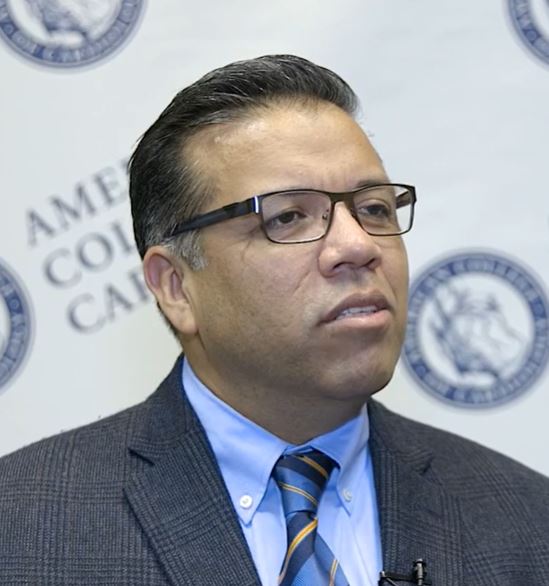
Hector M Garcia-Garcia
Interventional Cardiologist
Dr Hector Garcia-Garcia is director of angiographic, intravascular ultrasound, optical coherence tomography and near infrared spectroscopy imaging at the Cardiovascular Core Laboratory, MedStar Cardiovascular Research Network, MedStar Washington Hospital Center (MWHC). He is also chairman of the Clinical Event committee and an attending cardiologist at MedStar Heart and Vascular Institute, MWHC.
Prior to joining MedStar, he served as director of the core invasive imaging laboratory at a clinical research organisation and as a researcher at the Erasmus Medical Center, Rotterdam. He obtained his degree from the Universidad Autónoma de Guadalajara, Mexico. He completed a residency in cardiology and a fellowship in interventional cardiology at the Instituto Nacional de Cardiologia Ignacio Chavez and the Universidad Nacional Autónoma de Mexico. His master’s degree in epidemiology and his doctorate degree in clinical research are from the Erasmus University Rotterdam, the…
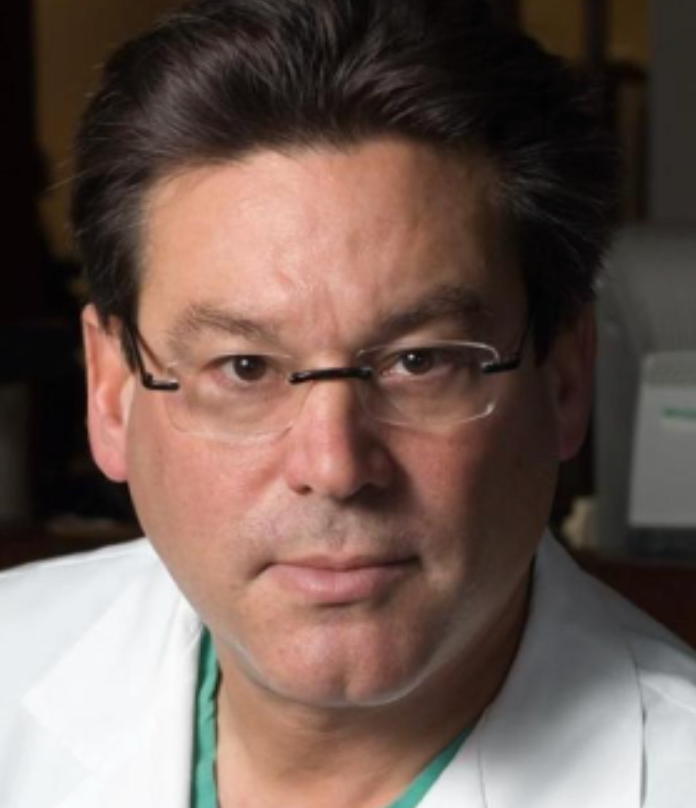
Richard A Shlofmitz
Dr Richard Shlofmitz is the chairman of the department of cardiology a St. Francis Hospital the Heart Center, USA, and has been with St. Francis Hospital since 1987. He has served as principal investigator in numerous percutaneous interventional trials at St. Francis Hospital.
He received his medical degree from New York University Grossman School of Medicine and has been in practice for over 20 years.
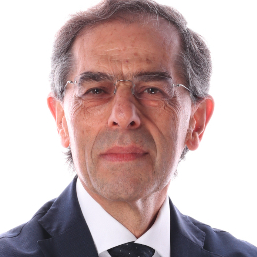
Giulio Guagliumi
Interventional Cardiologist
Dr Giulio Guagliumi is an Interventional Cardiologist at Galeazzi Sant'Ambrogio, Milano, IT. He is an internationally recognised leader in the use of Optical Coherence Tomography (OCT) in the coronary arteries.
Dr Guagliumi's research interests combines scientific and medical training, expertise in conducting prospective, randomised trials, and leadership in the field of high-resolution imaging applied to evaluation of in-vivo stent vascular responses.
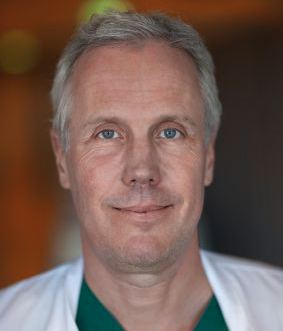
David Erlinge
Head of the Cardiology Department
Prof David Erlinge is Head of the Cardiology Department at Skane University Hospital, Lund, SE. He graduated in medicine from the University of Lund, in 1990, where he also earned his Ph.D.
In 2006 he received the Lars Werkö distinguished research fellowship and was appointed Professor in Cardiology at Lund University in 2008.
Prof Erlinge’s clinical specialty is invasive cardiology (PCI) and his main research interests include acute coronary syndromes, platelet function, and cardioprotection.
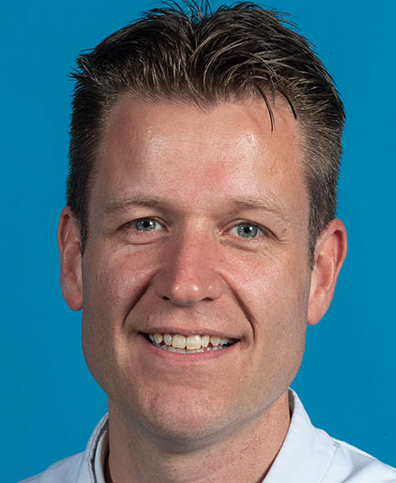
Alexander Hirsch
Assistant Professor and Principal Investigator of Cardiovascular Imaging (MRI)
Dr Alexander Hirsch is an Assistant Professor and Principal Investigator of Cardiovascular Imaging (MRI) at Erasmus University Medical Center, Rotterdam, NL.
He trained as a cardiologist at the Academic Medical Center in Amsterdam and registered as a cardiologist in 2013. He joined the department of Cardiology and Radiology of the Erasmus MC in November 2016 and his main focus is CMR.
His main research interests are CMR in ischaemic and non-ischaemic cardiomyopathy and the application of novel imaging techniques like T1-mapping and 4D flow.






Comments